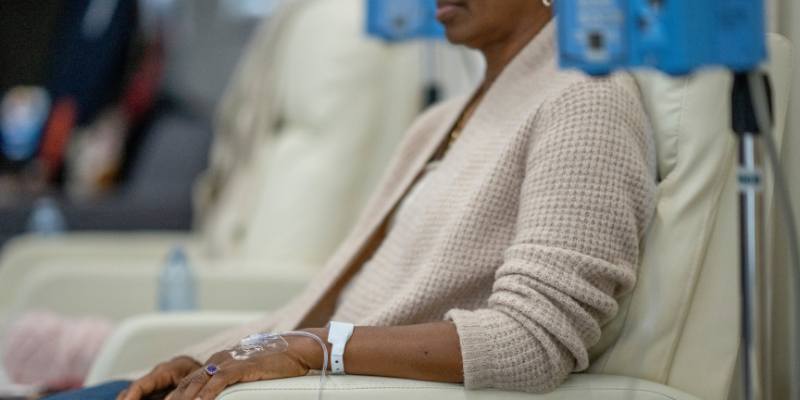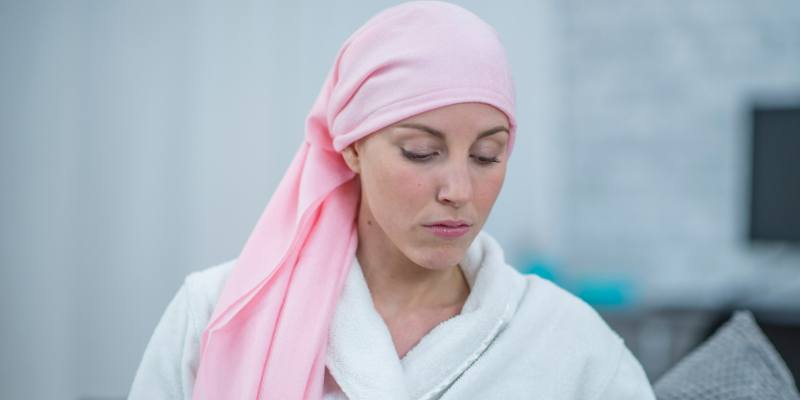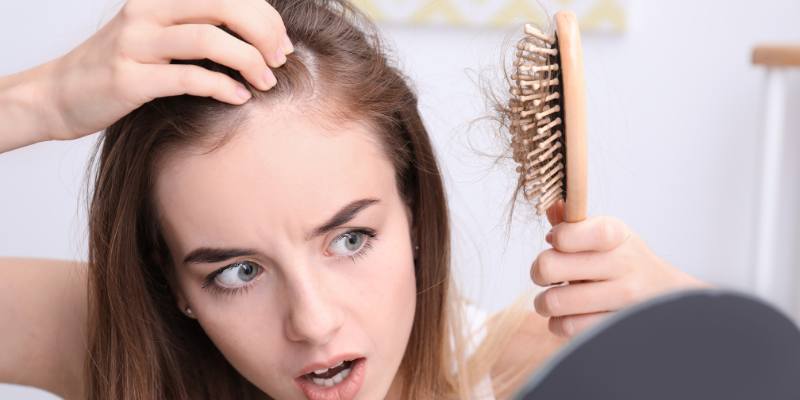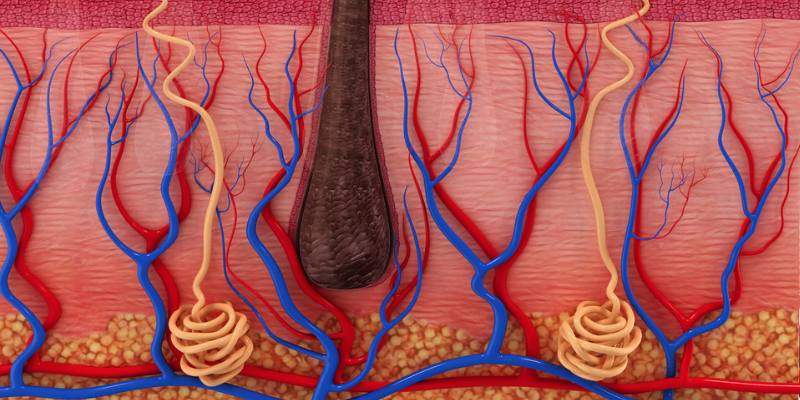Hair loss is a common and often distressing side effect of many cancer treatments, particularly chemotherapy.
While it can be emotionally challenging, it's essential to understand why it happens and remember that hair loss is usually temporary.
This blog post will shed light on how cancer treatments cause hair loss and offer some tips for coping.

The Hair Growth Cycle: Understanding the Root of the Problem
Hair goes through a natural growth cycle with three distinct phases:
- Anagen (growth phase): This is the active growth phase where hair follicles produce new hair cells rapidly. This phase can last for 2-7 years for most scalp hair.
- Catagen (transitional phase): A short phase lasting a few weeks where hair growth slows down and the follicle prepares to detach from the blood supply.
- Telogen (resting phase): This resting phase typically lasts about three months, after which the hair naturally sheds to make way for new hair growth.
Chemotherapy's Impact: Targeting Rapidly Dividing Cells
Chemotherapy drugs work by targeting and destroying rapidly dividing cells.
Cancer cells are the primary target, but these drugs can also affect other healthy tissues with high cell turnover, like hair follicles. During the anagen phase, hair follicles are actively dividing cells.
The side effects of chemotherapy hair loss can be daunting.
When chemotherapy attacks these rapidly dividing cells, it disrupts the hair growth cycle and prematurely pushes follicles into the telogen phase.
This leads to increased hair shedding, often noticeable 2-3 weeks after starting treatment.

Beyond Chemo: Other Cancer Treatments and Hair Loss
Chemotherapy isn't the only culprit.
Radiation therapy can also cause hair loss, mainly if it's directed to the head or neck. The hair loss is usually temporary and limited to the treated area.
Specific targeted therapies and immunotherapies used to treat cancer may also cause hair thinning or shedding, though it's typically less common and severe than with chemotherapy.
The Good News: Hair Loss is Usually Temporary
While hair loss during cancer treatment can be upsetting, it's important to remember that it's usually temporary.
Once your treatment is complete, hair typically grows back within a few months.
Coping with Hair Loss During Cancer Treatment
Here are some tips for managing hair loss and keeping your confidence high:
- Talk to your doctor: Discuss your concerns about hair loss and explore options like cold caps (cooling devices used during chemo to minimize hair loss).
- Explore different hairstyles: Consider shorter styles, wigs, hats, or scarves to feel more comfortable and confident. Focus on scalp care: Use gentle shampoos and conditioners and avoid harsh styling products that can irritate your scalp.
- Embrace your inner beauty: Hair loss doesn't define your strength or beauty. Focus on taking care of your overall health and well-being.
- Connect with support groups: Talking to others who understand what you're going through can be incredibly helpful.
At Wig Medical, we believe hair loss shouldn't define you. We empower you to reclaim your confidence and rediscover your beauty. Explore our comprehensive wig selections online, schedule a complimentary consultation with a certified specialist today, or contact us to learn more.
We can also help find out if your insurance covers the cost of a wig.
Contact a Wig Medical team member today to learn more about our customizable solutions.

Five Things You Need to Know about Hair Loss Caused by Chemo
We know it’s a challenging time if you are going through chemotherapy.
We hope that having a better understanding of why hair loss is happening will help you in the journey to recovery.
1 - Why does chemotherapy cause hair loss?
Chemotherapy drugs are designed to attack rapidly dividing cells, including cancer cells and other rapidly growing cells in the body, such as those in the hair follicles.
This disruption of the hair growth cycle leads to hair weakening and eventually falling out.
Hair loss can occur anywhere on the body, not just on the scalp.
2 - Is hair loss from chemotherapy always guaranteed?
Not all chemotherapy treatments will cause hair loss, but it is a common side effect.
The likelihood and severity of hair loss depend on the type and dose of medication used. Some drugs may cause slight thinning or reduce hair density, while others can lead to complete hair loss.
Your oncologist can provide more specific information based on the treatment regimen.
3 - When does hair loss typically begin after starting chemotherapy?
Hair loss usually begins within a few weeks after the start of chemotherapy.
The loss can be gradual or rapid, with some patients reporting large clumps of hair coming out when washing or combing their hair.
This can be quite shocking and emotionally distressing for many patients.

4 - Will my hair grow back after chemotherapy?
Yes, hair usually starts to regrow a few weeks to months after chemotherapy is completed.
However, the new hair may have a different texture, color, or curliness than it did before.
This change is usually temporary, and the hair will return to its normal state over time.
5 - What options are available to cope with hair loss during chemotherapy?
- Cranial Prostheses (Medical Wigs): These are specially designed wigs for people undergoing chemotherapy. They can be made from synthetic or natural hair and are often lighter and more comfortable than regular wigs, with options for customization to fit personal style and comfort needs.
- Scalp Cooling Caps: These devices, worn during chemotherapy, can help reduce hair loss by cooling the scalp and reducing the flow of chemotherapy drugs to the area.
- Head Coverings: Scarves, hats, and turbans can provide comfort and help maintain body warmth, as well as offer a stylish way to cover hair loss.
- Emotional Support: Counseling and support groups can help manage the emotional impact of hair loss.
Wig Medical has the largest network of Cranial Prosthesis specialists to help you with your hair loss challenges.


1 comment
I am really interested in this course. I hope I can practice with the certification or I will later on require a license to practice?